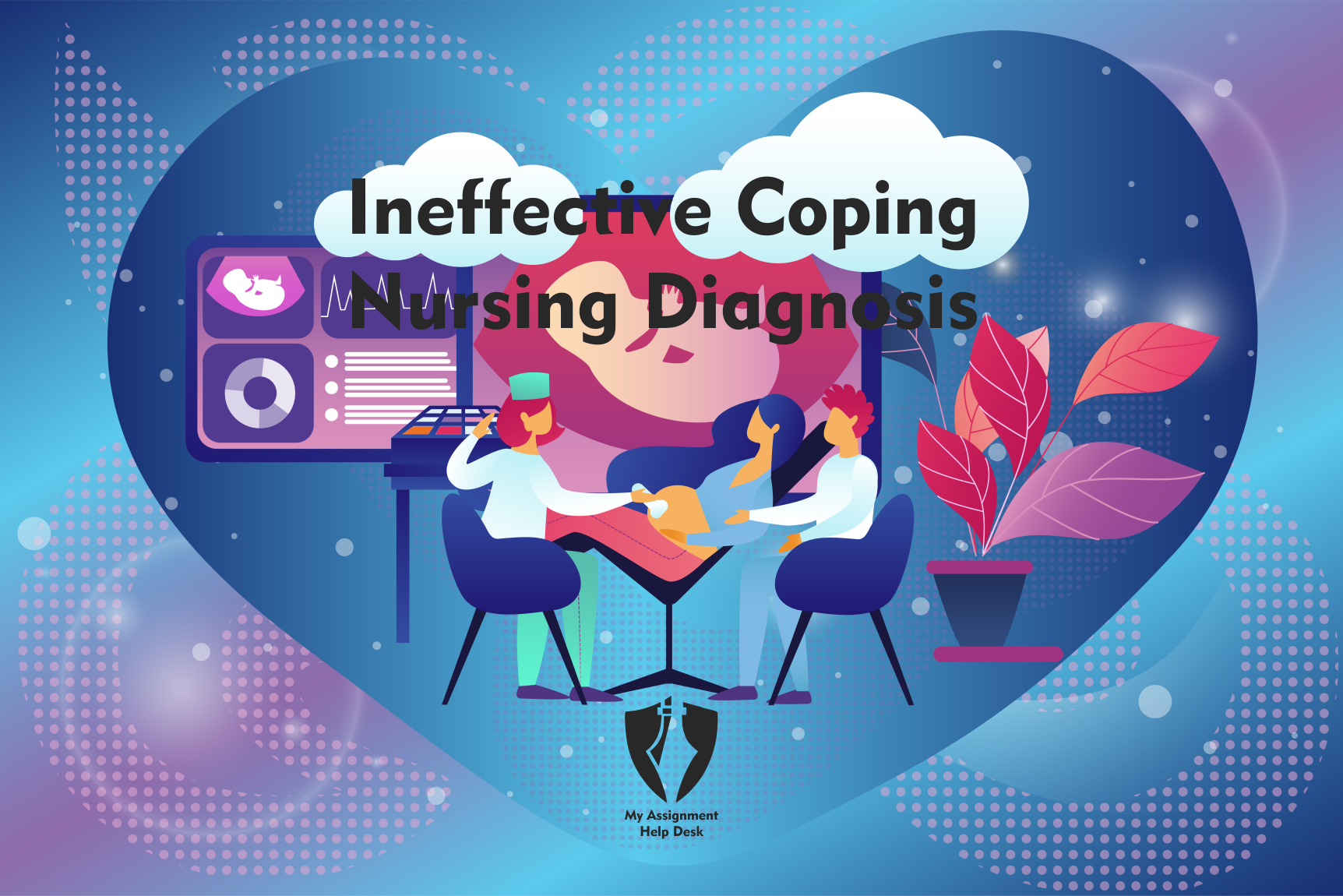Ineffective Coping Nursing Diagnosis
In your practice as a nurse, you’ll encounter people who feel uncomfortable due to the great life demands and immense pressures. This problem may persist to the extent that patients feel like they may not cope with the issue. Some of the stressors and demands may range work, family, or professional related.
I agree that everybody gets stressed at times, but when issues get out of hand, one becomes overwhelmed and not able to cope with the situation. At that point, when one is unable to make choices or form a valid appraisal of stressors- this is ineffective coping. This article will help you understand your role as a nurse in the diagnosis of ineffective coping patients.
Table of Contents
Case Study of Ineffective Coping
Let me provide you with a case of ineffective coping to help you understand better about this problem. Ruby Johnson is a 57-year-old mother with five children and is hospitalized with breast cancer. From her condition, she is scheduled for a radical mastectomy, which involves removing nearly all the breast tissue and some lymph nodes.
Ruby Johnson did not have any health issues until she found a lump in her breast a few weeks ago. With the revelation by the doctor that she and her husband are extremely anxious about the whole process, it is worrying how the patient will cope with the issue. She was overheard confiding with the nurse, “I am confused… how will I look like when one of the breasts is cut off”. Ever since then, Ruby is taking alcohol, is always fearful, and cannot continue with her work.
Nursing Diagnosis Goals and Outcome
The need for nursing diagnosis, for the ineffective coping patient, is to improve the health condition and help to cope. Depending on the cause of ineffective coping, the nurse expects a positive outcome from the process:
- The patient should be able to communicate his/her needs and negotiate with them.
- The patent can initiate effective coping strategies to resume back to his/her normal life.
- The patient can cope with the situation and show a positive result based on new behaviors.
- The patient can staunchly focus on the present and show signs of dealing with the future.
- The patient can identify his/her personal strength and allow the support of the nurse in an amicable relationship.
- The patient can make decisions and change a provocative situation.
- The person can utilize the available resources and nursing support to cope with the current situation.
Despite the differences in the situations and stressors, the common denominator is to enable the patient to cope and forge ahead decisively.
Nursing Diagnosis and Assessment
Nursing diagnosis for ineffective coping will encompass the clinical judgment about the response to the situation at hand. The nurse will conduct an assessment to decide on the most appropriate intervention to help the patient come out of the severe problem and regain life to normal. There are different assessment parameters that the nurse should undertake to understand the patient condition better for treatment
Defining Characteristics
In any ineffective coping case, there is a defining characteristic that is exhibited by the patient. In this assessment, the nurse is interested in evaluating the behavioral and psychological response that the patient exhibit to stress. A nurse should first evaluate the presence of the defining characteristics.
An assessment of how the patient behaves due to the stress and the physiological response gives a clue on the severity of the problem. It also forms the basis for the nurse to understand the level of coping by the patient and make an appropriate intervention.
Assessment of Cause For ineffective Coping
The nurse provides an intervention measure of ineffective coping based on the cause. As such, it is imperative, as part of the diagnosis, to conduct a proper assessment of the cause of ineffective coping. Patient coping behavior disorder could be based on some cultural perceptions- this should be established during the diagnosis.
The nurse should also make an observation and establish the recent happenings, which could be the cause of ineffective coping. Some of the occurrences that are associated with ineffective coping include grief, lack of support, and an abrupt change in life situations. Indeed, the nurse should assess situational factors to aid the patient in understanding the probable solution for the problem.
Identification of Specific Stressors
Despite there being different causes of ineffective coping, in every patient, there is a specific trigger of this condition. In light of this, the nurse should establish a specific stressor that has led to a sudden change in the patient.
An accurate appraisal of the patient’s condition to establish the specific stressors can facilitate the development of the appropriate coping strategies. In conducting the appraisal, it is imperative to understand that coping difficulty could also be caused by several factors, and it is vital to establish persistent stressors.
Patient’s strength
When a coping problem, patients consider their resources as limited and incapable of aiding to resolve the issues at hand. However, the patient has some aspects that he/she can utilize to come out of the problem.
It is the role of the nurse to establish the patient’s stronghold both in cultural heritage and or previous experiences. This is a vital exercise as it helps the nurse to choose an appropriate intervention while utilizing the areas of the patient’s strength. Indeed, such information forms the foundation for planning care.
Past Experience in Coping
The nurse plan of care for ineffective coping patients should be appropriately suited for a particular patient. As such, the nurse could formulate interventions from previous experience. As such, the nurse must establish how the patient used past coping mechanisms in problem-solving.
It is also important to conduct this exercise to understand patients who may have a history of maladaptive coping. The nurse should also be prudent enough to make necessary adjustments since previously successful coping mechanisms may not be adequate in the present situation.
Great Caution
While providing nursing care, the nurse should set up appropriate mechanisms to cope with any eventualities. More importantly, the nurse should monitor the risk of self-harm on the patient. Some patients may harm other people due to hopelessness and the inability to solve the problems.
In instances where there is no adequate support in-home setting, proper nursing care should be administered, especially where there is a high risk of self-harm or suicide. In dealing with ineffective coping, it is always imperative to remember that the intent is to protect the patient and help them cope with the situation.
References
- Ladwig, G. B., Ackley, B. J., & Makic, M. B. (2019). Mosby’s Guide to Nursing Diagnosis E-Book. Missouri: Elsevier Health Sciences.
- Gordon, M. (2014). Manual of nursing diagnosis. NY: Jones & Bartlett Publishers.
- Collins, A. (2013). Effect of continuing nursing education on nurses’ attitudes toward and accuracy of nursing diagnosis. International journal of nursing knowledge, 24(3), 122-128
- Ackley, B. J., & Ladwig, G. B. (2010). Nursing Diagnosis Handbook-E-Book: An Evidence-Based Guide to Planning Care. Missouri: Elsevier Health Sciences
- Gil Wayne, R (2017).ineffective coping. Retrieved from https://nurseslabs.com/ineffective-coping/




